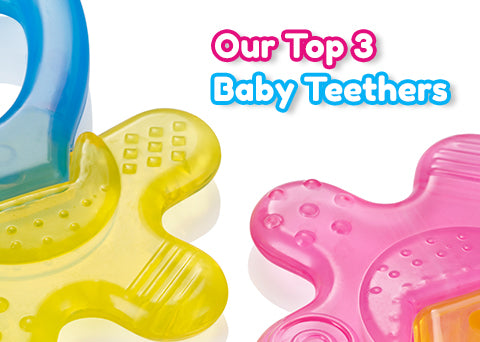What Are The Signs Of Teething, And How Can I Help My Child Through It?
Teething can be a difficult time for both babies and parents alike. Your little one may suddenly become fussy, irritable, and may have trouble sleeping or eating. As a parent, it's important to recognize the signs of teething and understand how to help your baby through this difficult time. In this blog post, we will be discussing the signs of teething and providing tips on how to provide relief and comfort for your baby.
1. Signs of Teething
Teething typically begins around 6 months of age, although some babies may begin teething as early as 3 months or as late as 12 months. The most common signs of teething include excessive drooling, chewing or gnawing on objects, and fussiness or irritability. Your baby may also develop a low-grade fever and experience a loss of appetite. It's important to note that while these symptoms are common during teething, they can also be a sign of sickness or infection, so it's always best to consult with your doctor if you are unsure.
2. Provide Relief
There are several teething remedies for babies that can help ease your baby's discomfort during teething. Giving your baby a cold baby teether toy to chew on can help soothe sore gums. You can also use our baby teething wipes that provide a soothing sensation and have anti-inflammatory properties to help relieve painful teething symptoms.
Chilled purees or yoghurt can also help alleviate discomfort caused by teething. Always make sure to supervise your baby while they are chewing on baby teether toys or any other object to avoid choking hazards. Massaging your baby's gums with your finger accompanied by a baby teething wipe can also help provide relief.
3. Keep Them Comfortable
One of the best ways to help your baby through teething is by providing them with comfort. Try to keep their environment calm and peaceful, and avoid any overly stimulating activities that may cause them to become overwhelmed. Spend extra time cuddling and rocking your baby, this can help provide a sense of security and comfort. Playing soothing music or white noise can also help soothe your baby, and distract them from their discomfort.
4. Be Patient and Loving
Teething can be a stressful time for both you and your baby, so it's important to be patient and loving with your little one. Remember that this is a temporary phase, and it will eventually pass. Reassure your baby with your love and attention, and try to keep them on their regular schedule as much as possible. If you find that your baby is particularly fussy or having trouble sleeping at night, it's okay to ask for help from family or friends or speak with your doctor or health visitor to get advice and support.
Teething can be a challenging time for both parents and babies, but with a little bit of knowledge and understanding, you can help your baby through it.
Understanding the signs of teething and providing relief and comfort can ease your baby's distress and make the process more manageable. Remember, teething is temporary and will eventually pass. Be patient, be loving, and be there for your little one every step of the way!
Discover more and shop our teething range.







